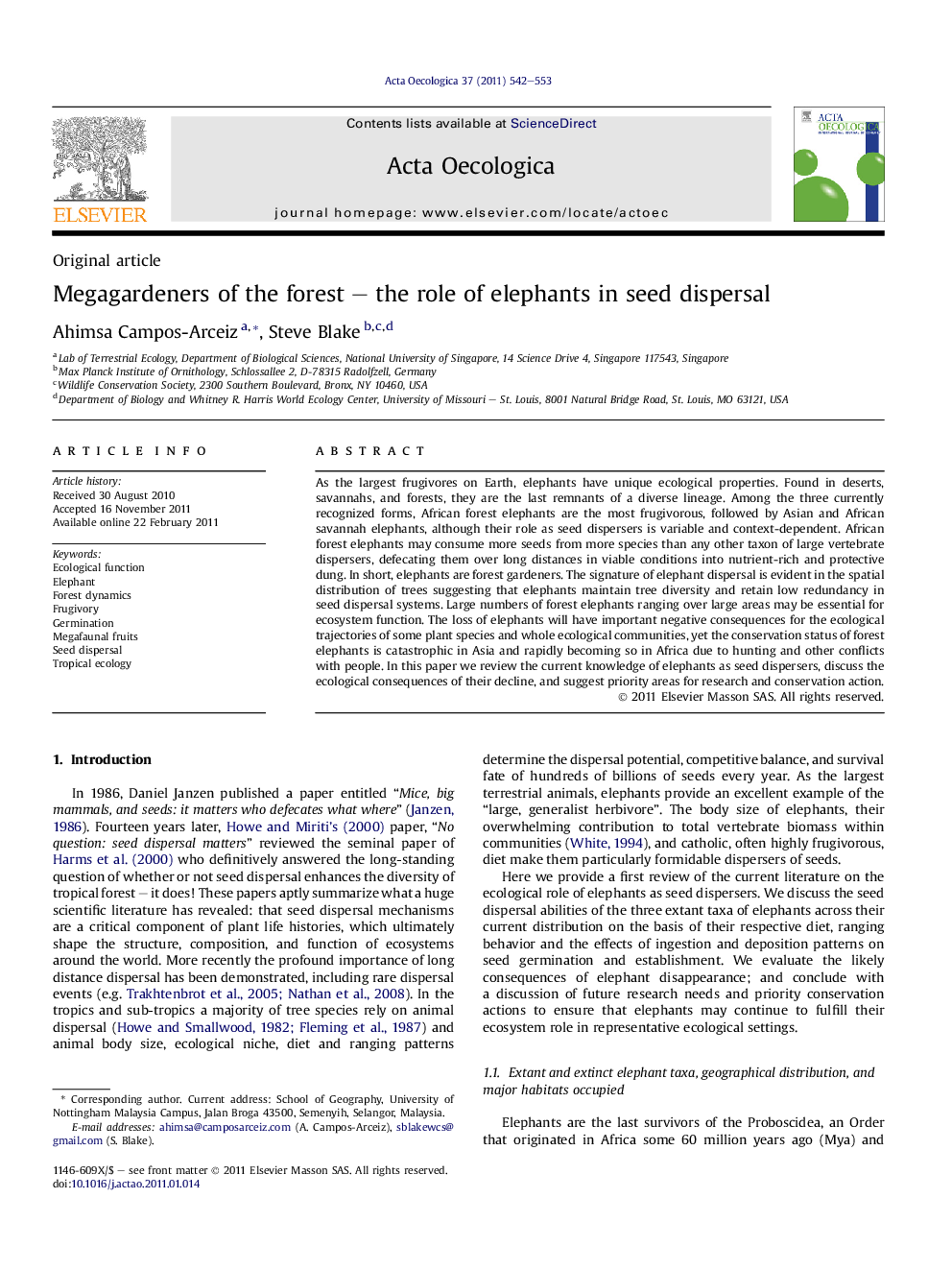| Article ID | Journal | Published Year | Pages | File Type |
|---|---|---|---|---|
| 4381344 | Acta Oecologica | 2011 | 12 Pages |
As the largest frugivores on Earth, elephants have unique ecological properties. Found in deserts, savannahs, and forests, they are the last remnants of a diverse lineage. Among the three currently recognized forms, African forest elephants are the most frugivorous, followed by Asian and African savannah elephants, although their role as seed dispersers is variable and context-dependent. African forest elephants may consume more seeds from more species than any other taxon of large vertebrate dispersers, defecating them over long distances in viable conditions into nutrient-rich and protective dung. In short, elephants are forest gardeners. The signature of elephant dispersal is evident in the spatial distribution of trees suggesting that elephants maintain tree diversity and retain low redundancy in seed dispersal systems. Large numbers of forest elephants ranging over large areas may be essential for ecosystem function. The loss of elephants will have important negative consequences for the ecological trajectories of some plant species and whole ecological communities, yet the conservation status of forest elephants is catastrophic in Asia and rapidly becoming so in Africa due to hunting and other conflicts with people. In this paper we review the current knowledge of elephants as seed dispersers, discuss the ecological consequences of their decline, and suggest priority areas for research and conservation action.
